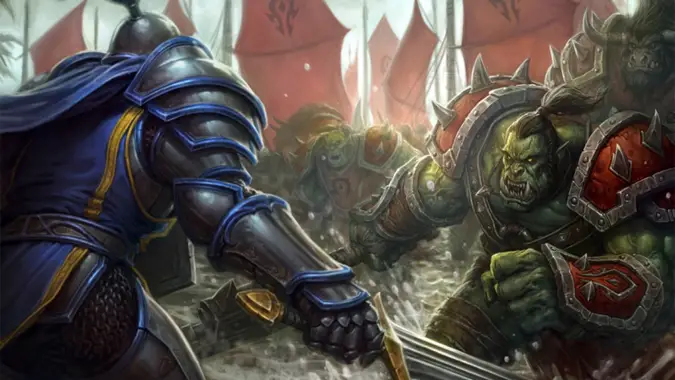Role Play: Keeping in character

When you roleplay, you’re pretending to be someone you’re not. You’re making decisions and interacting with people as your character would – “in character.” What you do in character isn’t a reflection of how you feel or act when you’re “out of character” – just being yourself. But today’s question is a really good one – what do you do when that line between the two is crossed?
That line between IC (in character) and OOC (out-of-character) is a tricky one. On the one hand, what you do when you’re in character is just that – it’s your character. It’s not you being rude; it’s your character having a reaction to whatever is going on around them. Once you’re done roleplaying, you drop whatever chip your character was carrying on their shoulder and just move on, no problem, right?
Not necessarily. In situations like this, you’re usually looking at one of two options – either the person you’re roleplaying with is being too sensitive…or you’re not being sensitive enough.

Check the situation
Roleplaying can be creative, rewarding fun – a writing challenge between two people, an exercise in improvisational acting. But it’s not just about showing up in game, it’s about exchanging words. Words are powerful things, and under the right circumstances, they can hurt. A lot.
So if you find yourself in a situation where a fellow roleplayer appears to be carrying actions made IC out into the OOC world, you want to take a closer look at what just happened. Sometimes there are some words, phrases or attitudes that are unacceptable on both sides of the IC/OOC divide. Sometimes what you say is taken very, very personally – even if you didn’t intend it that way.
What exactly was said? How well do you know your fellow roleplayer? Did they ever, at any point, try to stop the roleplay that was going on? Was there a point where they tried to leave the situation? Did they ask you to leave? If so, did you do so, or did you stick around?

Check yourself
Being “in character” is not a carte-blanche excuse to suddenly be the world’s biggest jerk. It’s not a method to be used to get away with repeatedly insulting and belittling your roleplaying companions. And if it seems like you might be using the term to achieve this, people really aren’t going to want to interact with you at all, be it IC or OOC.
In situations like this, you want to take a look at how you were acting at the time. Yes, you were in character, but did you take things too far? Was your character being a grade-a jerk? More importantly, are they always behaving like a grade-a jerk? If so, you might just be coming across as one of the people mentioned above, whether you intended it or not.
Characters – much like anyone in the real world – aren’t expected to be little bundles of sunshine all of the time. But there’s a limit to how much anyone is going to want to interact with anyone who is perpetually antagonizing, IC or no. If all of your interactions with another player have been negative, it shouldn’t really be a surprise that they’d be giving you a pass.

Check your fellow roleplayer
There are instances, however, where that line-crossing falls on the other end of the spectrum. You can’t really do anything about someone who is taking everything said to their character personally. What you can do is check with the roleplayer in question, and figure out what went wrong. Ask them for clarification – what was said that set them off?
Was it something your character said, or how they were acting? Make sure that your fellow roleplayer is okay. Emphasize that you definitely didn’t mean to offend on an OOC level. Apologize, if necessary – sometimes that’s all that’s needed to fix a situation.
You don’t necessarily know everything about the person you’re roleplaying with, on a personal, OOC level. Maybe the words you used hit them a certain way, and they don’t care for a repeat experience. But above all else, try to be understanding. Just because you didn’t intend something to be hurtful, it doesn’t mean someone taking offense is immediately in the wrong.
Above all else, try and keep in mind two things – you can choose to roleplay however you want. If you want to play a surly personality or an eternal jerk, nothing is stopping you. But in turn, people can also choose whether or not they’d like to roleplay with you. If the character you’re presenting is one that they don’t really find fun, they may choose to distance themselves, both on an IC and an OOC level.
You don’t have to police what your character says – but other people have the option of choosing not to listen, if they don’t care for what your character has to say. You can’t change how someone else feels, nor should you try to. If it seems like someone is being too sensitive or taking things way too personally, maybe it’s better for you to take a step back as well, and find someone else to roleplay with.
Please consider supporting our Patreon!
Join the Discussion
Blizzard Watch is a safe space for all readers. By leaving comments on this site you agree to follow our commenting and community guidelines.
 @Shadesogrey
@Shadesogrey



